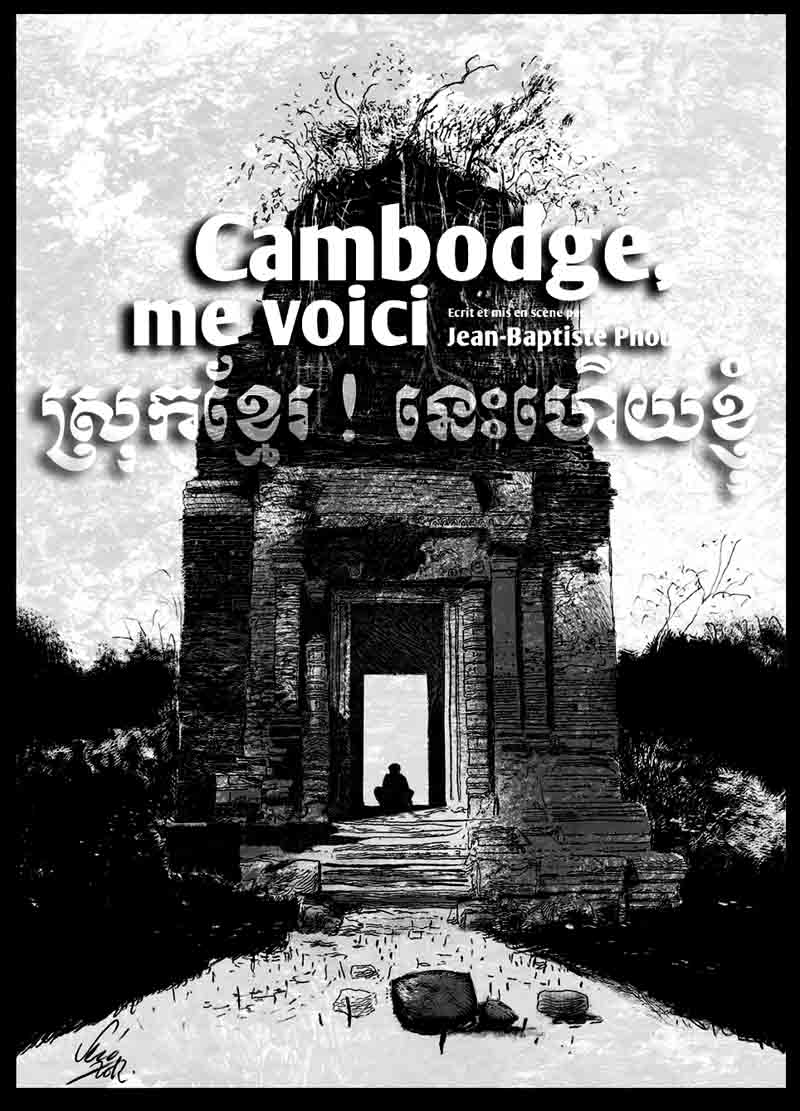“Of course I’m nervous!” laughs Jean-Baptiste Phou. “I never imagined that a thought I had sitting on my own in front of my computer would one day become all this!” He gestures round him in amazement.
The ‘all this’ to which he is referring is the frantic preparation for opening night of Phou’s first play, Cambodia, Here I Am, which will show at Chenla Theatre and has the backing of the French Institute. Little wonder the first-time writer and director is having a minor case of pre-premiere jitters.
The play, which toured France last year, centres around four Khmer women stuck in the waiting room of the Cambodian Consulate in Paris. Three are returning to Cambodia for disparate reasons; one is on the cusp of a new life in France with a French husband. Four characters spanning four generations, each holding very different perspectives on the country they putatively call home. As they discuss Cambodia and their increasingly tenuous connections to it, their struggles and hopes surrounding identity and self-hood are subtly revealed. “They all have their own idea of Cambodia,” explains Phou. “They all strongly defend their vision, but that vision is subjective and they are all wrong and right in the same way. They tease each other all the time; there’s tension there.”
A group of characters stuck in a room tormenting each other? Sounds suspiciously Sartrean. But Phou denies such direct referentiality, although he admits that being born in Paris it’s “pretty hard to get away from Sartre”. In an attempt to purify his creative process, the playwright closeted himself away from external influences during the genesis of the work, attempting to find his own authentic way of telling the stories of the four Cambodian women populating his mind and his page.
The result is innovative and intriguing. While making use of accepted Western dramaturgy, such as character motivation and causal narrative structure, Cambodia, Here I Am determinedly includes elements typical of Khmer classical theatre: shadow puppetry, traditional instrumentalists onstage with the actresses, Apsara dance. However, Phou didn’t feel the mere inclusion of these traditional motifs would be “interesting enough”, so he added his own authorial-directorial twist. The shadow ‘puppets’ are flesh and blood actors, silhouetted in magic-lantern motion; the instrumentalists sporadically interact with the actresses; even the Apsara dance, venerated in Cambodia, is done with a tongue-in-cheekiness, becoming a vehicle for examination of cultural stereotypes and Western perceptions of what it is to be ‘Asian’.
It’s this nod to the prismatic nature of perception that for Phou holds the key to Cambodia, Here I Am. “For me it’s about representation, false representations, stereotypes and fantasies.” Even for Cambodians – be they emigrants, immigrants, returnees or lost sons and daughters – Cambodia is a many-splendoured thing, irreducible to a glib slogan no matter how catchy the Ministry of Tourism’s ‘Kingdom of Wonder’ tagline may be. Phou’s play provides a glimpse into the complexity of comprehending Cambodia, and the subjectivity of any theory that claims to do so.
Unsurprisingly, the play refuses to present its audience with a neat and tidy ending. When do cross-generational, cross-continental identity crises have neat and tidy endpoints? “Is there any resolution? No, that’s something tricky…” muses Phou. “I don’t want the play to be didactic. But despite all the tensions and different experiences and different representations, I wanted at the end to really connect the four characters, connect the four generations. It’s not a happy ending, but they are all moving towards Cambodia in some way. And they’re all asking the country, ‘Please accept me as I am.’”
WHO: Jean-Baptiste Phou, playwright and director
WHAT: Cambodia, Here I Am
WHERE: Chenla Theatre, Phnom Penh Cultural Centre, Mao Tse Tung Blvd
WHEN: 7pm September 8, 3pm September 9
WHY: Who among us isn’t having an identity crisis?
